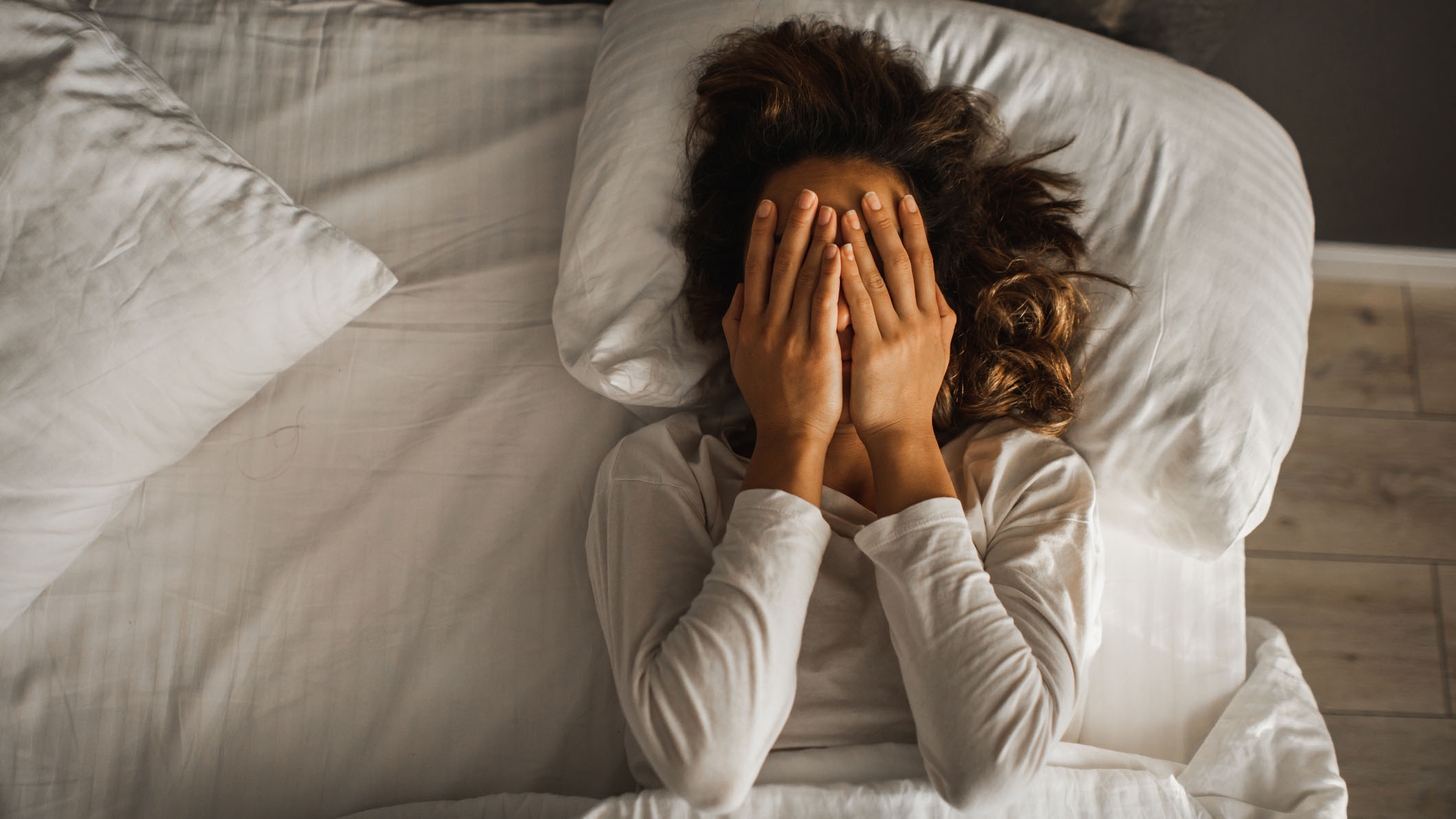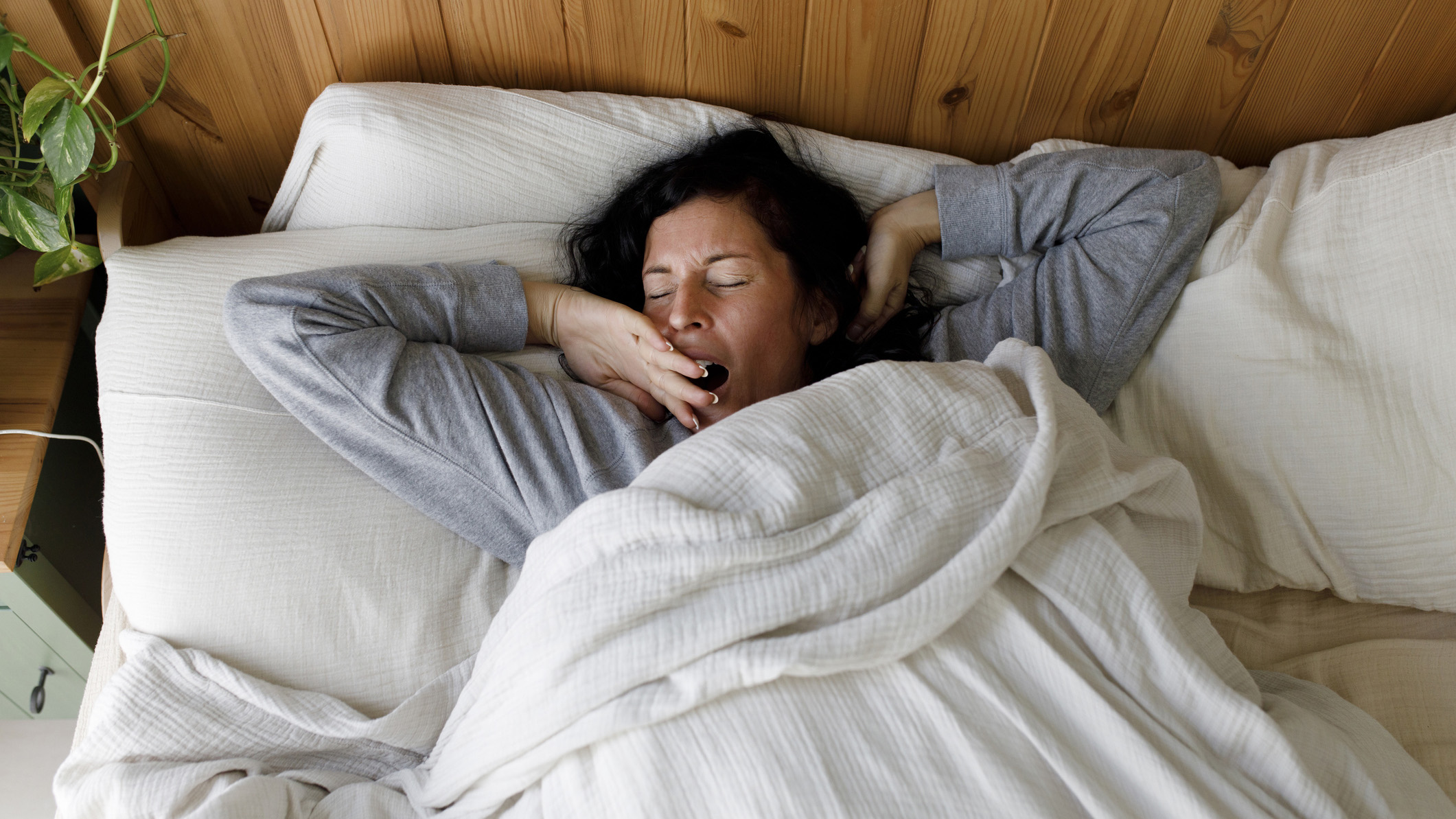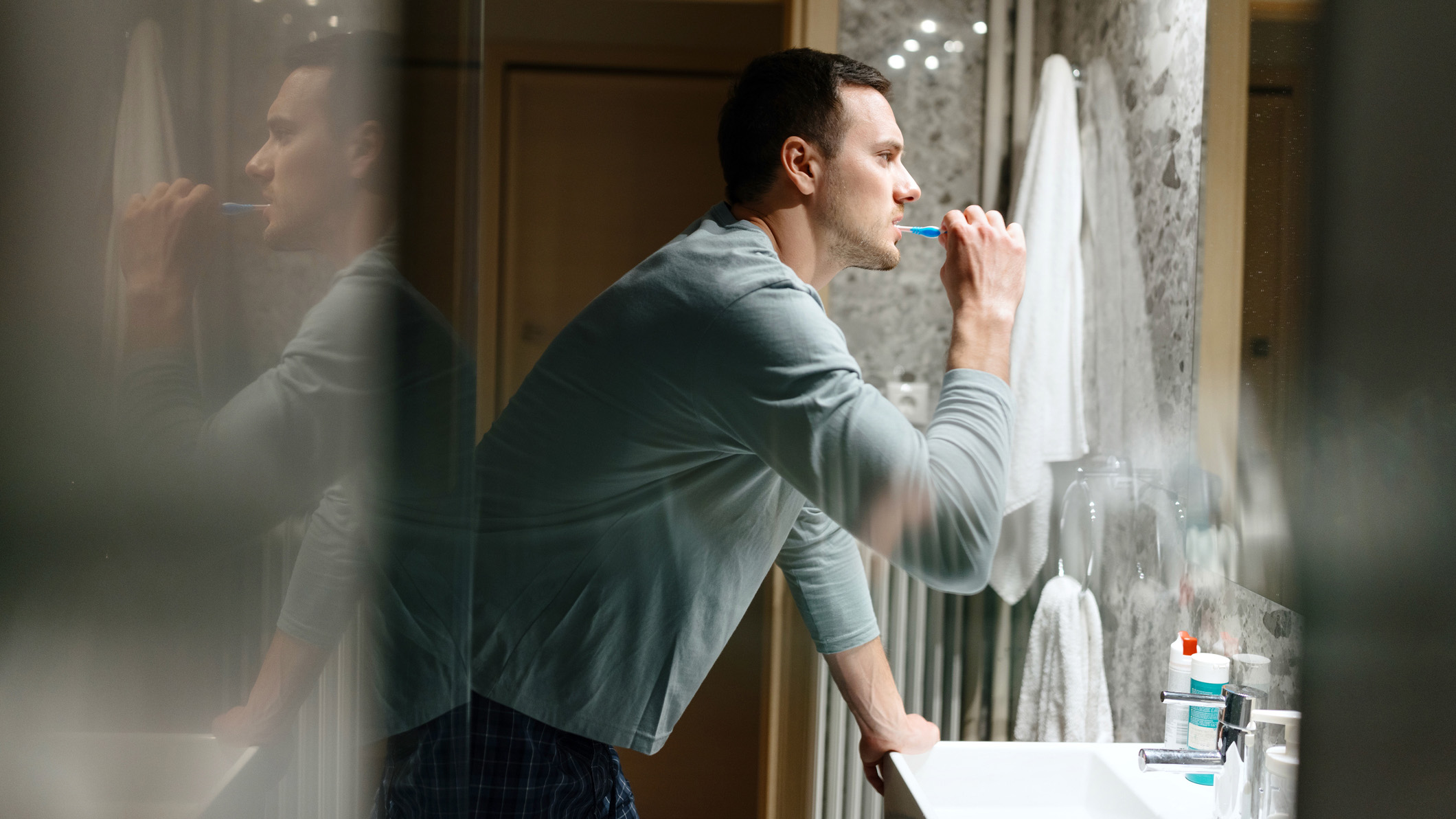Do you lay in bed for hours yet can't sleep? 7 expert tips to falling asleep fast
Why you can’t sleep and how to fix it, according sleep experts

Do you often lie in bed for hours but can’t sleep? You’re not alone. One in three Americans admit to consistently getting less sleep than they need, with insomnia being a common cause. Thankfully, there are steps you can take to overcome your sleep disruption and fall asleep faster. Here, we’ll quiz sleep experts Max Kirsten and James Wilson for their pro tips on improving our overall sleep duration and quality.
From drinking and eating too close to bedtime to doomscrolling into the small hours, certain lifestyle habits can wreak havoc on our ability to drop off into a peaceful slumber. But your inability to fall and stay asleep could also be down to insomnia, of which there are several different types.
“Insomnia is a sleep disorder characterised by difficulty falling asleep, staying asleep, or experiencing non-restorative sleep despite having the opportunity to do so”, explains Max Kirsten, a resident sleep expert at Panda London. “It can lead to daytime fatigue, irritability and impaired functioning.”
Here, both Kristen and James Wilson, a sleep expert for MattressOnline, share their pro tips on how to get your sleep back on track.
7 expert tips to help you get to sleep fast
1. Don't nap before bedtime
If nighttime insomnia is making you feel fatigued during the day, you might be tempted to make up for it by napping. However you should keep them to a minimum, advises Kirsten: “If you need to nap during the day, keep it short (20-30 minutes) and avoid napping too close to bedtime." If you nap too close to bedtime, your sleep drive won't be high enough, so you'll lie in bed for hours unable to sleep.
It may sound strange, but try doing some exercise when you're feeling tired in the day. Exercise boosts energy levels and endorphins, so you could avoid having to take a nap. Staying active in the day helps you get to sleep faster at night too, says Kirsten, as it “regulates your sleep patterns''. Just be sure to finish your workout a few hours before bedtime.

2. Only go to bed when you're sleepy
Ever been tempted to hit the snooze button and catch up on sleep? Or are you hitting the hay later on the weekends as a form of revenge bedtime procrastination? While fun, this may be doing more harm than good. “Go to bed and wake up at the same time every day, even on weekends,” advises Kirsten. “This helps regulate your body's internal clock.”
However, James Wilson believes that sticking to a sleep schedule doesn’t mean you have to go to bed or wake up super-early. Instead, go to bed at an hour that’s right for your individual natural rhythm. “A natural 'night owl' can't fall asleep at 9pm, no matter what they do. You need to make sure you're sleepy when you go to bed,” he explains. “If you still feel wired, you should continue to relax.”
Sign up to get the BEST of Tom's Guide direct to your inbox.
Get instant access to breaking news, the hottest reviews, great deals and helpful tips.
3. Dim the lights and mask noise
“Make your bedroom conducive to sleep by keeping it cool, dark, and quiet,” advises Kirsten. “Invest in comfortable bedding and consider using blackout curtains or a sleep mask.”
If you're sensitive to noise, such as your neighbour’s barking dog or the sound of music blasting from a different room, Kirsten advises using white noise or calming nature sounds to drown out disturbances that might prevent you from falling asleep. You can find loads of these on YouTube, Spotify and on specialist meditation and mindfulness apps like Calm and Headspace.
Investing in the best mattress for your body type and sleep style will also help you get to sleep fast at night as you'll be far comfier in bed.
4. Don't drink or binge-eat before bed
While it’s not a good idea to go to bed with a rumbling stomach, it’s not a good idea to go to bed feeling stuffed either — and you definitely should steer clear of the coffee and alcohol. “Avoid large meals, caffeine, and nicotine close to bedtime,” Kirsten tells us. “These can disrupt sleep or make it harder to fall asleep.”

5. Get dressed for bed before you relax
Your bedtime routine should begin an hour before you go to bed. As part of your routine, Kirsten highlights the importance of developing calming pre-sleep rituals, such as reading a book or taking a warm bath to “signal to your body that it's time to wind down.”
"Before you start relaxing, make sure you have done everything you usually do before bed, like getting into your PJs and brushing your teeth,” Wilson adds. “That way, you can jump straight into bed when you feel sleepy, rather than doing anything that may wake you up."
6. Avoid clock-watching
You’re lying in bed and you feel as if your set alarm time is edging closer and closer. You check your phone’s clock, and you have seven hours before wake-up time. You check your phone again, and you now have four hours of sleep time left. “Constantly checking the clock can increase anxiety about not being able to sleep,” Kirsten says. “Turn your clock away or place it where you can't see it.”
7. Consider a natural sleep aid
A lot of people don’t like the idea of relying on sleeping pills to help them drift off and prefer to turn to herbal remedies such as passionflower and aromatherapy instead . “Some people find herbal teas like chamomile or valerian root helpful,” notes Kirsten. “Consult with a healthcare professional before trying any supplements.”
Melatonin gummies as a sleep aid have also risen in popularity in recent years. Check out our guide on what melatonin gummies are and if you should take them for more advice.
Insomnia FAQ
What is insomnia?
According to the CDC, insomnia is a disorder that causes the sufferer to experience great difficulty falling or staying asleep. Roughly 70 million Americans have a sleep disorder, with roughly a third of those people experiencing insomnia.
Sleep expert James Wilson points out that an inability to fall asleep straight away does not automatically mean that you have insomnia. “To fall asleep healthily, it should take you between 5-30 minutes to drop off,” he explains. “Falling asleep as soon as your head hits the pillow is not a good thing and is a sign of sleep deprivation. It suggests that you are not meeting your sleep needs.”
Can insomnia come and go?
If you find your insomnia comes and goes, it could be that you have acute insomnia. Sleep expert Max Kirsten says that there are three main types of insomnia, which come with their own set causes and symptoms:
- Transient insomnia: Lasts for a few nights and is often linked to situational stress or changes.
- Acute insomnia: Occurs intermittently and is typically related to life events or short-term stressors.
- Chronic insomnia: Persists for at least three nights a week for three months or more. It may be related to underlying health conditions, psychiatric disorders, or persistent stress.
Can insomnia cause anxiety?
Kirsten tells us that insomnia not only affects your sleep at night, but also your emotional state during the day, presenting itself in the form of mood disturbances such as sadness and anxiety. He also tells us that, outside of daytime symptoms, insomnia can present itself in other ways such as:
- Difficulty falling asleep: Individuals with insomnia may struggle to initiate sleep even when tired.
- Difficulty staying asleep: Some people wake up in the middle of the night and find it challenging to return to sleep.
- Early morning wakings: Waking up earlier than desired and being unable to go back to sleep.
- Non-restorative sleep: Even if individuals with insomnia spend enough time in bed, they may wake up feeling unrefreshed and fatigued.
- Daytime symptoms: Insomnia often leads to daytime impairments such as fatigue, mood disturbances, difficulty concentrating, and decreased performance.
Can insomnia be cured?
The good news is that insomnia is treatable, with Wilson and Kirsten advocating for sleep management methods (such as adopting good sleep hygiene and relaxing techniques) that work for your type of insomnia — which sometimes means talking to a medical professional if your symptoms are severe and undergoing different therapies including Cognitive Behavioral Therapy for Insomnia (CBTi).
“The severity and impact of insomnia can vary, and addressing the underlying causes, adopting good sleep hygiene practices, and sometimes seeking professional help are essential for effective management,” Kirsten says.
“If you constantly struggle with sleep despite trying these tips, it's essential to consult with a healthcare professional to rule out any underlying sleep disorders or medical conditions. They can provide personalised advice and treatment options based on your specific situation.”

Frances Daniels is a PPA-accredited journalist and Sleep Staff Writer at Tom's Guide with an MA in Magazine Journalism from Cardiff University. Her role includes covering mattress and sleep news and writing sleep product reviews and buyer's guides, including our Best Hybrid Mattress 2025 guide. She is hugely interested in the relationship between good sleep and overall health, interviewing a wide array of mattress and sleep experts to create well-informed articles about important topics such as nutrition, sleep disorders (from sleep apnea to night terrors), lucid dreaming, sleep hygiene, and mattress care. She is also our specialist on mattress toppers — producing mattress topper reviews and taking care of our Best Mattress Toppers 2025 guide — and takes the lead on all content related to fiberglass-free mattresses for a clean, non-toxic sleep. Outside of Tom's Guide, she has written for Ideal Home, Homes & Gardens, and Marie Claire.
